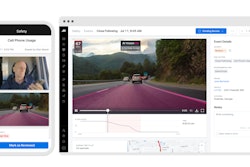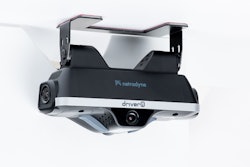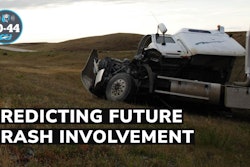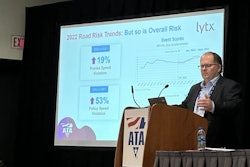I didn't come into this job with a trucking background.
I worked at a grocery store when I was a kid on the overnight crew, unloading trucks and stocking shelves. Years later, I was running a group of newspapers and I took weekly delivery of truckloads of newsprint rolls for our press. The time I spent lugging stuff out of a trailer was the extent of my trucking knowledge.
When I jumped into this industry in 2012, being on this side of the curtain and seeing the choreographed logistical synchronous dance that is the movement of freight was eyeopening. It's still pretty incredible that a box of crackers rolls off a cracker-making machine in Illinois on a Monday and within a matter of a few days hops on a few trucks, into a distribution center or two, and your local store shelves before finally arriving in your bowl of chili.
The entire world got a crash course in trucking and the role it plays during the pandemic. If you weren't working in a hospital in COVID hot-zone, there may have been no tougher job than truck driver in the depths of the pandemic. Nowhere to eat because restaurants were closed. Nowhere to use the bathroom because there were restrictions at some rest stops, state rest areas were closed, and the shipper/receiver for sure weren't letting the truck driver in to use the bathroom.
With fewer cars on the road, driving during the pandemic was a little easier (and safer), but there remained an issue that has plagued this industry for a while: parking. When states closed rest areas, that wiped out thousands of parking spaces, and there already weren't enough.
Only one parking spot exists per every 11 trucks on the road, and sometimes we have to "share" those with RV'ers, campers, charter buses, and the occasional idiot who parks their personal vehicle there for some reason.
For those of us who don't see it up close, the idea of struggling to find a place to park is probably hard to get your mind around. Outside of Black Friday and opening night of a Star Wars movie, car-parking really isn't a problem. A study recently commissioned by CloudTrucks revealed that 56% of Americans were unaware of a truck parking shortage. Think about the last time you complained about being able to find a parking place in your personal vehicle. You probably found one, it just wasn't 100 feet from the door, and there were probably dozens of other places available that were an inconvenient hike to the entrance.
During truck test drives, I don't often have to park the rig over the course of a trip. Generally, I'm doing a few hundred miles and I can get that in without needing to stop. I have stopped a couple handfuls of time for one reason or another, and about half the time I've either had to make a few laps and get lucky catching someone leaving, or punt outright and try another stop somewhere else, where I still have no guarantees of finding a place. It's a vicious cycle for the unlucky.
After receiving more information on the parking shortage throughout the survey, 86% of CloudTrucks' respondents called the parking shortage a “significant” or “critical” problem, and 90% said increased public awareness of the issue is necessary. Overall sentiment toward truck drivers in the survey was favorable too. Respondents reported they feel truck drivers are overworked (82%) and underpaid (56%) for what they do, and when asked whether truck drivers were safer or less-safe drivers than the general public, 50% said truckers were “safer drivers than the general public."
There's not much the general public can do to alleviate the truck parking shortage other than stop parking in our spots, but I do think there's an opportunity to educate the people around us that when they see truck parking included in some legislative act, to let them know its not just some pork project. It's a key piece of infrastructure legislation. What CloudTrucks' survey shows is something we all probably assumed: that the general public doesn't understand our problems, and some don't even know they exist. Yet when they learn about it, they understand it and are sympathetic.
As much time, energy and money this industry puts into promoting trucking as a career path, there are millions of people who couldn't be dragged into this industry by their hair. Yet their actions influence everything we do: aggressively passing trucks; parking in the wrong spots or blocking loading zones "just to run inside for a minute"; their places of business not allowing drivers to use the restroom. The list is endless, but to the general public all these things are inconsequential (to them) until someone explains the cause and effect.
"Can't find a place to park? You'll find one eventually?"
Maybe. Maybe before my drive time runs out. Maybe after I get a hours violation. Maybe I have to stop driving an hour earlier than I normally would because I see a spot, which affects my paycheck and your cost of goods. As long as those $3 crackers are $3 and on the shelf before supper time, it's not really a problem is it? Of course it is, and there's clearly a need (and an opportunity) to get the general public on our side.











